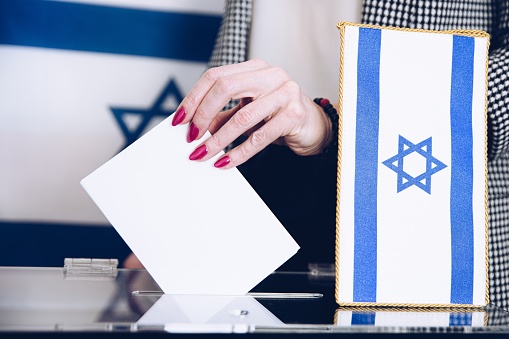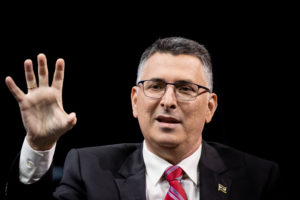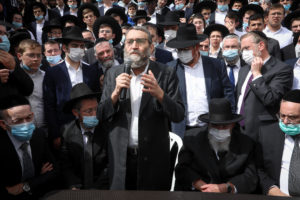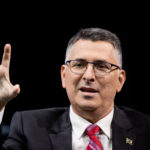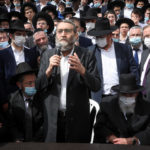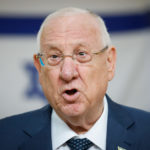Almost a third of Arab voters in Israel say they want Prime Minister Benjamin Netanyahu to remain in his role, a television poll showed Saturday.
In the survey conducted by the Israel Democracy Institute, 31 percent of Arab Israeli voters said they want Netanyahu to stay on as prime minister, while 56% said they don’t, Channel 12 news reported.
The Times of Israel says the figure is striking for a right-wing prime minister whose policies are often antithetical to those of Arab Israeli lawmakers, and who in the past has been accused of demonizing the Arab public.
Meanwhile, among Jewish Israelis, 43% support Netanyahu remaining as premier, while 52% do not.
The report did not specify how many people were questioned in the survey.
When asked if public transportation and commerce should be allowed in secular areas on Shabbat, the Jewish day of rest, voters of centrist and left-wing parties all agreed. But voters of the right-wing New Hope party shared similar levels of support for the proposal. While Likud and Yamina voters were somewhat ambivalent, though trending toward opposing, Orthodox and ultra-Orthodox parties were strongly opposed.
Similar results were seen when respondents were asked about same-sex marriage laws. The Orthodox parties being completely against while New Hope’s voters showed high levels of support, alongside centrist and left-wing parties such as Meretz. Likud and Yamina were somewhere in the middle.
Shas voters — and not Likud — were the least supportive of barring persons under indictment from forming a government, though Likud voters were largely opposed as well. Meanwhile, voters of Yamina and New Hope were as supportive of such a motion as centrist and left-wing parties.
Another IDI poll last week showed just 29% of all Israelis think the upcoming vote will offer a decisive answer regarding the identity of the next prime minister, while supporters of Netanyahu’s Likud party are far more optimistic, at 52%.
Left-voting respondents appeared to be the least confident that the fourth Knesset election in two years will result in a clear victor, at just 15%, while 23% of centrist voters and 36% of right-wing voters said they believe the vote will yield a clear-cut outcome.
The poll also showed that even though a majority of Jewish Israelis — 53% — still oppose a coalition that relies on support from Arab-majority parties, there has been a marked increase in support for Arab-Jewish political cooperation, particularly among those who identify as centrist or right-wing.
Support for the idea among left-wing Jewish Israelis has grown since September 2019 from 71% to 79%, among centrists from 31% to 47%, and among right-wingers from just 5% to 21%.
At the same time, a majority of Arab Israelis — 74% — oppose having an Arab party in a coalition.
In recent years, Arab-majority parties have grown in size, reaching a peak of over 12% of votes cast in the 2020 election, when the Joint List won 15 seats, becoming the second-largest opposition party.
The party split into two factions for the current race, with Hadash, Balad and Ta’al agreeing to run together under the Joint List name, while Ra’am, an Islamist party, will run alone.
The March 23 election was called after the power-sharing government of Likud and Blue and White failed to agree on a budget by a December 23 deadline. The election, like the previous three votes, is largely seen as a referendum on Netanyahu’s rule amid his ongoing trial on corruption charges, as well as his government’s handling of the COVID-19 pandemic.


